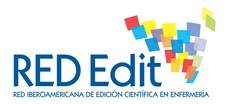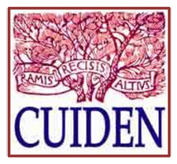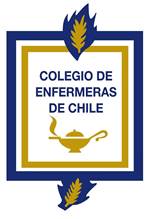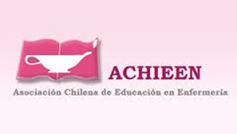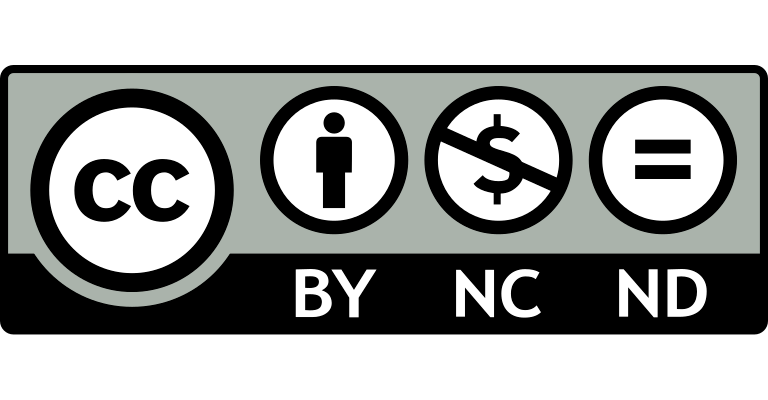About the Journal
Aims and Scope
- Benessere, Revista de Enfermería is the official journal of the School of Nursing of Universidad de Valparaíso and was founded in 2016.
- Benessere, Revista de Enfermería publishes qualitative, quantitative and mixed scientific articles, review papers, reflection papers, study cases, historical reviews, editorials, and letters to the editor. All manuscripts must not be published nor under evaluation in other journals when submitted.
- Benessere, Revista de Enfermería addresses topics related to health, the nursing discipline, nurse education, professional, interprofessional and interdisciplinary role, and/or projects that contribute to health and nursing knowledge.
- Benessere, Revista de Enfermería accepts different types of publications that support the exchange of experiences and knowledge related to the nursing discipline written by researchers, scholars, professionals and students.
- Benessere, Revista de Enfermería publishes in Spanish, but also accepts manuscripts in English and Portuguese.
- Benessere, Revista de Enfermería is an international scientific journal with Ibero-American emphasis.
Open Access Policies
- Benessere, Revista de Enfermería provides immediate and open access to its contents based on the principle that providing the public with free access to research helps to increase global knowledge exchange.
- Benessere, Revista de Enfermería is a digital journal of universal, free, open, and immediate access. The journal publishes on the principle that free availability of research helps and builds a greater knowledge exchange.
- Benessere, Revista de Enfermería DOES NOT make monetary charges for accessing to published articles nor charges authors for processing, editing and submitting articles, which allows free and open access.
- Benessere, Revista de Enfermería is part of the Budapest Open Access Initiative (BOAI) since its beginnings. The journal is committed to unrestricted access to the published works in the journal, which are available in the “previous editions” section.
Copyright
- Benessere, Revista de Enfermería, is an Open Access journal edited by the School of Nursing of Universidad de Valparaíso. It is published under a Creative Commons Attribution-NonCommercial-ShareAlike 4.0 license, meaning that authors assign publication rights to the journal and that any person can share the contents of the article as long as they mention authorship and original location with the correspondent link to it. Likewise, whoever access to the material, cannot modify it, create similar documents, nor commercially exploit it. Review the license in the following link: https://creativecommons.org/licenses/by-nc-nd/4.0/.
- Assignation of copyright to Benessere, Revista de Enfermería means that:
- Authors retain copyright of their articles, but grant Benessere, Revista de Enfermería the right of first publication under the Creative Commons Atribución-No Comercial-Sin Derivar 4.0 Internacional license.
- Publication rights assignment allows Benessere, Revista de Enfermería to publish approved articles on digital and physical editions, to download contents by third parties, to translate documents into other languages, and to use the texts and images for promotional purposes. Furthermore, the exercise of necessary rights for publication, edition, reproduction, adaptation, and distribution of contents –both in print and digital format of the journal—is authorized.
- Authors will be able to make additional arrangements or negotiations so their article can be published on a non-exclusive basis in other media (e.g. as chapters of a book or within institutional repositories) as long as the first publication in Benessere, Revista de Enfermería is referenced.
- All contents, opinions, and points of view expressed are sole responsibility of the authors of the articles and are not necessarily shared by Benessere, Revista de Enfermería.
Ethical Standards and Good Practices
- Benessere, Revista de Enfermería is edited and published by the Nursing School of Universidad de Valparaíso (Chile). It is a continuous publication journal of original manuscripts of the nursing discipline and other related health sciences.
- Benessere, Revista de Enfermería aims to ensure the dissemination of great scientific quality articles. For this purpose, authors, journal editors, reviewers, and the Nursing School of Universidad de Valparaíso assume the responsibility to comply with the corresponding ethical standards of this type of publications in each of the stages of the process, according to their intervention, since submission to publication of the article.
- Benessere, Revista de Enfermería is committed to meet and maintain the standards of ethical behavior in all stages of the publication process. For this, the criteria of the Committee on Publication Ethics (COPE) international guidelines for good practices is used.
- Accordingly, authors, editors and reviewers assume the following responsibilities:
Editorial Team Responsibilities
- The editorial team must be poised, objective and fair while performing their duties. They must not discriminate against gender, sexual orientation, religious beliefs, political views, ethnic or geographic origins of the authors.
- The editorial team must manage sponsored articles or special requests the same as other submissions so that articles are considered and accepted solely on academic merit, without commercial influence.
- The editorial team will ensure that, under no circumstances, reviewers try to force authors to cite irrelevant texts of other journals or authors in order to dishonestly improve their prestige.
- The editorial team will not reveal information about the authorship of submitted articles to reviewers or possible reviewers.
- The editorial team must always adopt and follow reasonable procedures in case of ethics, conflicts of interest, or other complaints, according to the policies and procedures of Universidad de Valparaíso, when appliable. They must give the authors the opportunity to reply to any complaint and all must be investigated regardless of when the original document was approved. All documents related to complaints will be kept confidential. Editors must always be willing to publish corrections, clarifications, withdrawals, and apologies when necessary.
- The editorial team must treat plagiarism as an unacceptable act. Shall plagiarism be detected, the editors must immediately reject the article and inform the author. The Ouriginal anti-plagiarism system will be used to identify plagiarism and compare the submitted manuscript with available sources in academia.
- The editorial team will ensure that every article indicates the role of each one of the co-authors by using the Credit Roles Taxonomy guidelines (www.credit.niso.org).
- The editorial team will ensure the functioning of peer review and double-blind refereeing systems. All information of authors and peer reviewers, as well as sensitive data included on manuscripts and reviews, must remain confidential during the editorial process. To this effect, all received material cannot be used by editors without the explicit consent of the authors and will be protected from unauthorized access by third parties
- Members of the editorial team will not use nor spread, for their own benefit, any piece of information presented on the articles or in the comments made by peer reviewers.
- The editorial team will evaluate the manuscripts and send them for peer reviewing regardless of race, gender, sexual orientation, religious beliefs, ethnicity, nationality, political views, or institutional affiliation of the authors.
Authors Responsibilities
- Authors must present original and unpublished articles to Benessere, Revista de Enfermería.
- Authors are compelled to carry out corrections or, if necessary, withdrawals.
- Authors must properly identify research resources used to carry out the investigation of the submitted article.
- Authors must precisely describe any relevant data that relates to the research results. Simultaneously, they must be authorized to reproduce any content from other sources.
- Authors undertake to mention people who collaborated and contributed to the research and its results, so as to they appear as co-authors or collaborators if appliable.
- Authors must acknowledge and provide all used sources. Therefore, they must use the appropriate citation style. It is understood that the authors are fully aware that plagiarism is not accepted.
- Authors must inform about any financial conflict of interest that may interfere with the results or interpretations of the research. Hence, each author must undertake to describe the funding sources of the project or research, if appliable.
- Authors must immediately report any major error that they noticed after submitting the article in order to make the necessary corrections.
- Authors must participate in the peer-review process.
- Authors must immediately inform to the journal’s editor whether they identify any significant error in their manuscript. At the same time, they must collaborate with the editor to publish an erratum, appendix, corrigendum or withdrawal within the document when considered necessary.
- All authors must declare their contribution in the submitted manuscripts using the Credit Roles Taxonomy guidelines (www.credit.niso.org). In case of articles with more than one author, all participants undertake to significantly contribute to the definition of contents and express recognition to whoever have collaborated to final results. Information obtained by private means cannot be published without consent of the person or institution. The main author is responsible of including all co-authors and collaborators and of granting that all of them had reviewed and approved the final version of the document for its submission.
Reviewers Responsibilities
- Reviewers are scholars and professionals specialized in different areas of the nursing discipline. The journal promotes their gender, background and institutional affiliation diversity. Their names and ORCID are published in the journal’s website and updated on June of each year by compiling all reviewers from the previous year.
- Reviewers are selected and assigned for reviewing an article by the editorial team according to experience. However, a reviewer can refuse the charge if the contents of an article are not of his or her area of expertise and can recommend another peer specialized in the subject. In view of the editorial process timing, reviewers must inform the editor whether they accept or reject the review of an article as soon as possible.
- Reviewers must contribute to the decision-making process and help to improve the quality of published articles by objectively and timely reviewing manuscripts.
- Reviewers are required to maintain confidentiality of any piece of information given by the editor or author. They must not keep nor copy the manuscript submitted for review.
- Reviewers must alert the editor about any published or submitted content that might be significantly similar to the one in review.
- Reviewers must give neutral and well-argued feedback and/or corrections. Personal criticism is considered inappropriate as any remark must be objective.
- Critics, comments and recommendations must be respectful, neutral, and based on reasonable and well-documented arguments. The above must be written in the review sheet given by Benessere, Revista de Enfermería.
- Reviewers must know about any type of conflict of interest (financial, institutional, collaborative, or any other type of relationship between them and authors) regarding the manuscript in review. They must inform the editor about it and withdraw from reviewing.
Conflict of Interest Management
- According to the editorial process of Benessere, Revista de Enfermería, a possible conflict of interest is defined as a situation in which a member or members of the editorial process –author, reviewer and/or editorial team– have any type of relation with people or activities that may inappropriately influence their judgement or the proposed contents. Some examples of conflict of interest are: affinity or blood relationships, close working relationships involving leadership or subordination, teacher-student relationships; or sharing topics, research resources or objects, financing sources of research, or having commercial interests that may be benefited or harmed because of published contents.
- The editorial team of Benessere, Revista de Enfermería is always monitoring for the proper identification of possible conflicts of interest of the members, authors and reviewers. A member of the editorial team who declares a conflict of interest regarding an article shall abstain from participating in the parts of the editorial process involving the review, and shall be replaced in his or her functions by another member.
- Consultation mechanisms about possible conflicts of interest are included for authors and reviewers. The editorial team will maintain an active role to identify its existence.
- In case of identifying a previously undeclared conflict of interest in the provided document, Benessere, Revista de Enfermería reserves the rights to reject the article, the conducted review, or to apply the foreseen protocols for unethical behaviors that can lead to the withdrawal of the manuscript and its publication.
Unethical Behavior, Complaints, and Appeals Management
- The editorial team will monitor all stages of the process of detecting unethical behaviors, its follow-up, investigation, and appeal opportunity. If a third party identifies a misconduct and/or unethical behavior, please report it to the editorial team via email to revista.enfermeria@uv.cl
- The informer of unethical behaviors must offer verifiable information that allows to conduct a thorough investigation. All complaints will remain anonymous and the editorial committee will seriously consider and treat them until a corresponding result or agreement is reached. Following the COPE guidelines, the editorial team is responsible of:
- Choosing the appropriate type of investigation. The team can also ask for advice of the editorial committee or designate an academic commission.
- Notifying to whoever has infringed the ethical standards of the journal about the alleged facts.
- Soliciting relevant details to all parties and informers.
- Carrying out a thorough and completely confidential investigation.
- Giving the authors the opportunity to make their complaints, clarifications and appeals.
- Determining the results of the investigation or the validity of the available data of the complaint.
- If the unethical behavior means that a published article is invalid, Benessere, Revista de Enfermería will publish a formal statement on the journal’s website (https://revistas.uv.cl/index.php/Benessere/index) with all details of inappropriate behavior and will withdraw the concerned document of the journal. Audience will be notified about these actions.
- If the unethical behavior involves the influence of conflicts of interest in the review or editorial processes, Benessere, Revista de Enfermería will repeat the process with different reviewers or editorial team members other than those who incurred in unethical behavior.
- According to the seriousness of the behavior, Benessere, Revista de Enfermería reserves the right to put an embargo on the possibility of publication of authors or not to request editorial or review work to the involved members. The duration of these measures may be permanent or proportional to the seriousness of the offence.
Post-Publication Correction and Discussion
- Benessere, Revista de Enfermería receives corrections or explanations of published articles from corresponding authors as well as withdrawals or discussions related to the mentioned articles. This gives the authors the opportunity to respond or discuss topics in the announcement section of the journal, with prior review of the editorial team.
Inclusive and Non-Sexist Language
- Benessere, Revista de Enfermería is committed to accurate, unbiased and intersectional research, meaning sensitive contents to the complexity and breadth of the contexts covered by the journal. For this purpose, an inclusive and free of prejudice –i.e. race, functional diversity, gender, sexual orientation, believes, ideologies, or socioeconomic status– language is requested. Therefore, it is not acceptable to offer information of the subjects that is not relevant to the study as well as to ignore differences and specific characteristics when they exist and are relevant.
- To avoid stereotypes, Benessere, Revista de Enfermería discourages the use of labels that designate, stigmatize or discriminate against a group of people. It is of crucial importance to avoid negative sense in linguistic expressions and condescending terminology when referring to people with functional diversity. Regarding race, comparison between ethnic groups, essentialism, and reference to ‘minorities’ should be avoided. Thereby, Benessere, Revista de Enfermería advocates for the use of non-sexist language in submitted articles so as to make more visible the role of women and non-binary people in research.
Data Exchange and Reproducibility
- Benessere, Revista de Enfermería encourages authors to make available all data that supports the published results of their articles. Data that could compromise privacy, security or dignity of the involved subjects or institutions are excluded. Data that for cannot be public for legal or ethical reasons are also excluded. Promoted data for public availability include quantitative data and statistical analyses collected for investigation, qualitative data, images and own elaboration figures, and anonymous/informed consent interviews for public disposal, etc.
- Although data exchange is not compulsory for the journal, we reserve the right to request confidential access to any primary data that may be necessary to verify the results.
- Authors will be required to properly cite any publicly available research data in their reference list.
Disclaimer
- All contents and opinions expressed in published documents are sole responsibility of the authors and are not necessarily shared by the journal. By receiving articles, editors and reviewers are free to suggest partial modifications of its contents without affecting the meaning of the author’s statements. After the acceptance of articles for publication, Benessere, Revista de Enfermería is free to reproduce all contents for distribution, properly indicating it to the authors.
Use of Generative Artificial Intelligence (AI) in the Editorial Process
- Generative AI is a type of artificial intelligence technology that is able to produce various types of contents, including texts, images, audio, and synthetic data. E.g. of generative AI include ChatGPT, NovelAI, Jasper AI, Rytr AI, DALL-E, etc.
- In Benessere, Revista de Enfermería, manuscripts will be treated as confidential documents. The editorial team will not upload any article nor any part of it into a generative artificial intelligence tool, as this could breach confidentiality and infringe intellectual property rights. Furthermore, once the article has personal identifiable information, it can breach data privacy rights.
- Peer reviewing is the heart of the scientific ecosystem and Benessere, Revista de Enfermería is committed to the highest standards of integrity in this process. Thus, editorial evaluation of a scientific manuscript is recognized as a responsibility that can only be taken by human beings. The editorial team of Benessere, Revista de Enfermería will not use generative AI or AI-assisted technologies for the review or decision-making process of a manuscript, as critical thinking and original evaluation are necessary for this job and both are out of reach of these technologies. Moreover, there is a risk of generating inaccurate, incomplete or biased conclusions about the manuscript with technology.
- Authors can use generative AI and AI-assisted technologies in the drafting process before submission in order to improve language and readability of the article, which must be explicitly declared at the end of the article in a different section before the list of references. Should there is suspicion of AI policies infringement by an author or reviewer, the editor must be informed.
Peer Review Process
- Authors can only send unpublished and original works. Collaborations will be received throughout the year.
- Once confirmed the manuscript submission, the author is committed to wait for the acceptance or rejection answer before submitting it to another journal.
- The editorial team of Benessere, Revista de Enfermería, consisting of Editor-in-chief and Associate editors, will pre-check the original document for review (anonymous in both directions) and after observations, the article will be submitted to peer review (double-blind system) for the same purpose.
- The journal reserves the right not to publish submissions that do not meet the above guidelines.
- All papers will be subjected to two reviewers who, in no more than four weeks, will send their insights to the journal. The Editor-in-chief will immediately communicate the evaluation to the authors (via OJS or email) and will inform them whether the article has been ACCEPTED, ACCEPTED WITH SUGGESTIONS or REJECTED.
- Review process will be a double-blind evaluation, meaning that authors and reviewers will not know each other’s identities.
- If a manuscript has been accepted with suggestions, the work will be published once necessary corrections have been made by the author. It will be published just as any directly accepted article in the volume corresponding to the current year.
- In case of contradictory reviews, the Editor-in-chief will send the article to a third peer or the editorial team will decide, taking into account all arbitration carried out.
- Editors of Benessere, Revista de Enfermería that decide about possible publication of a manuscript must not have any personal, professional nor financial relation to the authors.
- Benessere, Revista de Enfermería undertakes not to use the information disclosed by authors and arbitrators for any purpose other than the resolution of the conflict of interest.
Frequency of Publication
- Benessere, Revista de Enfermería has been an annual format journal since its creation. Up to 2019, the journal had four volumes.
- Since 2021, the journal changed to continuous publication. This means that articles are published as the editorial production and publication processes are completed, regardless of day and month.
Anti-plagiarism System
- Benessere, Revista de Enfermería is cautious about the originality of articles presented for publication and submits these documents for plagiarism analysis conducted by the OURIGINAL anti-plagiarism system.
Archive
- Published contents of Benessere, Revista de Enfermería are registered and archived on Crossref website.
Sponsors
- RESEARCH COMMITTEE OF THE NURSING SCHOOL OF UNIVERDAD DE VALPARAÍSO
- LIBRARIES AND LEARNING RESOURCES DIRECTORY (DIBRA)
- POSTGRADUATE DIRECTORY OF THE NURSING SCHOOL OF UNIVERSIDAD DE VALPARAÍSO
- RED CHILENA DE REVISTAS DE ENFERMERÍA
Support Sources


